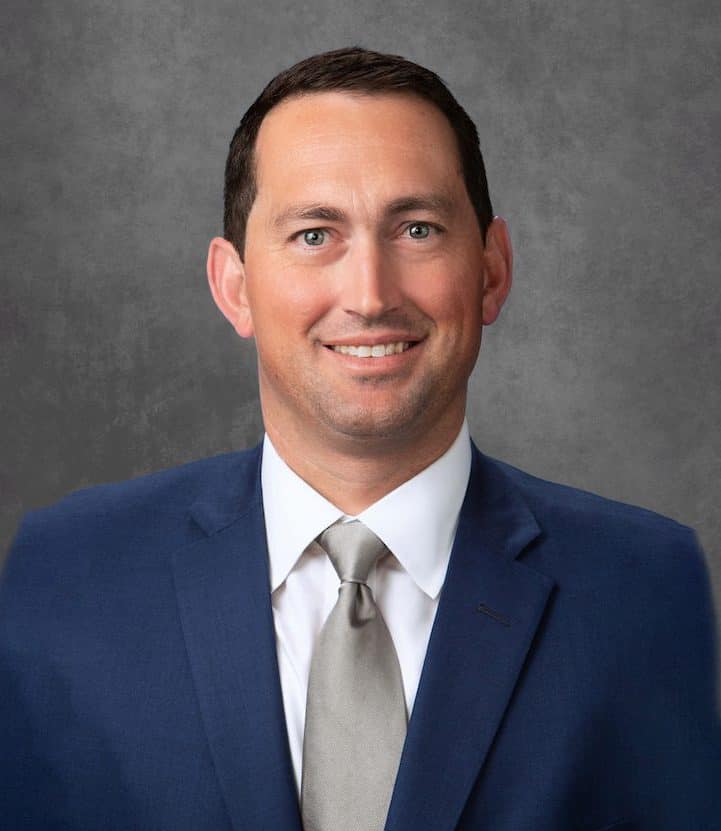In a recent roundtable discussion hosted by the San Diego Business Journal, Whit Batchelor, Executive Vice President and San Diego Regional Manager at Whittier Trust, joined fellow Southern California wealth management professionals to address the most pressing questions facing clients today.
How do I strategically incorporate philanthropic vehicles like a donor-advised fund or family foundation into my comprehensive wealth management plan and overall asset allocation?
 Integrating philanthropy into your wealth management strategy requires thoughtful coordination between your giving goals and tax planning. Private foundations and donor-advised funds offer powerful legacy-building opportunities, but with important distinctions in tax treatment and governance that must inform your selection.
Integrating philanthropy into your wealth management strategy requires thoughtful coordination between your giving goals and tax planning. Private foundations and donor-advised funds offer powerful legacy-building opportunities, but with important distinctions in tax treatment and governance that must inform your selection.
Strategic asset selection can significantly enhance tax efficiency. Non-income producing assets like car collections, vacation properties, or significant artwork often represent ideal philanthropic contributions–potentially providing substantial deductions while converting non-cash-flowing assets into charitable impact. We approach this holistically, viewing your wealth across three dimensions: assets inside your estate, outside your estate, and within philanthropic entities.
This integrated perspective allows us to optimize your philanthropic impact while creating meaningful tax advantages and preserving family values across generations.
I’m considering splitting my time between California and other locations. What strategic tax planning approaches should I implement to legitimately minimize my California income tax exposure?
 California residents approaching business transitions or retirement often have unique opportunities to optimize their tax situation while fulfilling lifestyle goals. Strategic planning around residency can yield significant tax advantages–particularly when spending time in non-income tax states like Nevada, Washington, Texas, and Florida.
California residents approaching business transitions or retirement often have unique opportunities to optimize their tax situation while fulfilling lifestyle goals. Strategic planning around residency can yield significant tax advantages–particularly when spending time in non-income tax states like Nevada, Washington, Texas, and Florida.
Proactively establishing non-California trusts or entities prior to significant liquidity events can dramatically reduce tax exposure when selling business interests. Similarly, establishing legitimate residency in no-income-tax states before drawing on retirement accounts can preserve substantial wealth.
We emphasize that “asset location” is as critical as asset allocation in comprehensive wealth planning. This includes thoughtful positioning of assets across various jurisdictions to leverage beneficial tax treatment both inside and outside high-tax states like California–creating long-term advantages while supporting your desired lifestyle.
I’ve built a substantial portfolio of investment real estate that has appreciated significantly, creating potential estate tax exposure. What sophisticated strategies would you recommend for transferring these properties to my children in a tax-efficient manner?
California’s remarkable real estate appreciation over recent decades has created both opportunity and challenge–with many families holding properties now exceeding lifetime estate tax exemptions. The goal becomes transferring these high-value assets to future generations while addressing several competing concerns.
Effective strategies must balance estate tax minimization with maintaining control and preserving cash flow during your lifetime, while also considering California’s property tax implications. Tools like Spousal Limited Access Trusts (SLATs), intentionally defective grantor trusts, and qualified personal residence trusts can be particularly effective.
Strategic discounting through family limited partnerships or LLCs can further enhance transfer efficiency. These sophisticated approaches allow significant real estate value to move outside your taxable estate while retaining income streams and influence–preserving both wealth and your desired lifestyle during retirement.
Our family’s wealth has grown substantially in both value and complexity. What solutions should we consider for streamlining this complexity and ensuring seamless continuity if either of us becomes incapacitated or passes away?
 As family wealth grows in complexity, what was once intellectually stimulating can eventually become burdensome–especially as priorities shift toward lifestyle enjoyment rather than wealth management. This challenge becomes particularly acute when responsibility has primarily rested with one spouse, potentially creating significant stress for a surviving partner.
As family wealth grows in complexity, what was once intellectually stimulating can eventually become burdensome–especially as priorities shift toward lifestyle enjoyment rather than wealth management. This challenge becomes particularly acute when responsibility has primarily rested with one spouse, potentially creating significant stress for a surviving partner.
Multi-family offices provide an elegant solution by offering comprehensive services that address both investment management and administrative complexity. Services like bill payment, household accounting, bookkeeping, tax coordination, and compliance management create a seamless infrastructure that functions reliably regardless of family circumstances.
This integrated approach ensures continuity during difficult transitions and provides peace of mind that your affairs will be managed according to your wishes–protecting both your surviving spouse and future generations from administrative burdens that they may be unprepared or unwilling to shoulder.
Answers provided by Whit Batchelor, Executive Vice President and San Diego Regional Manager with Whittier Trust.
Featured in the San Diego Business Journal Wealth Management Roundtable print edition.
If you have more questions about philanthropic planning, real estate strategies, tax-efficient wealth transfers, or simplifying complex family finances, start a conversation with a Whittier Trust advisor today by visiting our contact page.
From Investments to Family Office to Trustee Services and more, we are your single-source solution.

